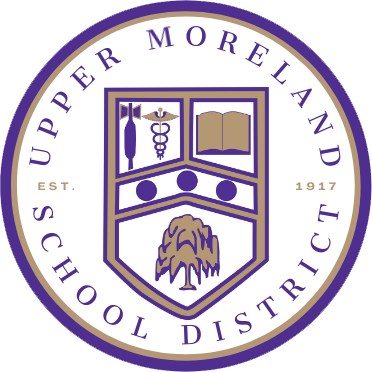French
Learning a Language is FUN!!
Imagine being able to speak to your friends and family in French. Imagine being able to talk to students from all over the world who speak the language that you are learning in school. Imagine traveling around the world and being able to communicate with people in the language that you are studying in school. Learning another language will open many doors for you throughout your journeys through school and life. It will help you academically, personally, and in your future career.
Why French?
Reasons to Study French
Tout le Monde Parle Français
French is spoken in over 33 countries, second only to English. French and English are the only languages spoken as a native language on 5 continents. French is the official language of France and its overseas territories as well as Bénin, Burkina Faso, Central African Repbulic, La Democratic Repbulique de Congo, Ivory Coast, Gabon, Guinea, Mali, Niger, Sénégal, and Togo in Africa. French is also spoken in Luxembourg, Belgium, Québéc, and Switerzland.
French Speaking Countries of the World

La Cuisine et La Nourriture (cooking and food)
French foods are among the very best in the world. The world’s finest chefs train in France and therefore thousands of cooking terms are in French. Here are some cooking terms that may be familiar.
Bisque | Crêpes | Entrée | Au Gratin | Au Jus |
Bouillon | Croûtons | Flambé | Hors d'Oeuvre | Pâté |
Pâtisserie | Baguette | Bouillabaisse | Brûlé | Canapé |
Les affaires (business)
French, along with English, is the official working language of
the United Nations
UNESCO
NATO
Organization for Economic Cooperation and Development (OECD)
the International Labor Bureau
the International Olympic Committee
the 31-member Council of Europe
the European Community
the Universal Postal Union
the International Red Cross
Union of International Associations (UIA)
French is the dominant working language at
the European Court of Justice
the European Tribunal of First Instance
the Press Room at the European Commission in Brussels, Belgium
One example of the importance of French can be seen in a recent listing of international jobs (7/3/07) distributed by the US State Department: 125 required or preferred French, 31 Spanish, 25 a UN language (Arabic, Chinese, English, French, Russian, and Spanish), 10, Portuguese, 7 Arabic, 4 Russian, and 2 German.
Les Études (Studies)
Learning French when it is a different language from one’s native language will facilitate learning another language. Since most languages have learning patterns which can be seen and learned this will speed language learning and understanding
French is a Romance Language, meaning that is comes from Latin. Learning it facilitates the learning of any other Romance Language.
Learning about the English language: Many words in English have Latin and French roots. Often one can recognize a word in English because of its French root. Of course the French root comes from the Latin and students can see the patterns without having to know Latin.
The study of French culture helps students learn how other parts of the world and people live. They will learn what they have in common and what differences there are.
Pour voyager (to travel)
French is the language of many of the most popular travel destinations
French Web Resources
Here is a list of French websites that contain information about French, French speaking countries, and some websites to help in the study of French.
To learn about the French speaking world, check out these sites:
If you are traveling to France, these sites may be helpful:
The following sites help students practice their French:
These sites are in French and provide places to practice listening to and reading French:
French Planned Course Descriptions
This course is the first level of a sequential program in the study of French. French I begins the development of the 3 modes of communication: interpretive (listening and reading), interpersonal (two-way communication-listening, speaking, reading and writing) and presentational (speaking and writing to an audience). Students will learn to communicate about personal information such as self, family, friends, likes and dislikes. Students will also learn the basics of the language such as alphabet, numbers, weather, etc. In addition, students will engage in conversations, read brief passages in French and study the beliefs of the people that speak French in relation to their culture. They will begin to develop an understanding of cultural influences and explore ways to connect with others who speak the language and attempt to use the language outside of the classroom.
This course is the second level of a sequential program in the study of French. French II requires extensive speaking, reading, writing, comprehension and cultural analysis activities conducted in the French language. French II continues the development of the 3 modes of communication: interpretive (listening and reading), interpersonal (two-way communication-listening, speaking, reading and writing) and presentational (speaking and writing to an audience). The course continues basic structures taught in French I. The students will learn to communicate about food, clothing, places in the city, directions, leisure time, etc. In addition, students will begin to speak about past and future events. Students will be exposed to the language and culture through authentic materials. The students will be building upon and expanding on communicative skills learned in level I.
This course is the third level in a sequential program of French III in which students continue to develop skills in the four modes of communication: interpersonal, interpretive, and presentational with an increasing proficiency in all areas. The goals of these modes are to have students interpreting and interacting with various authentic audio and texts and presenting their personal ideas and/ or information acquired from these resources. They will participate in real world simulations as appropriate to practice and demonstrate proficiency at a specific task. As they work in these specific areas, they will learn to distinguish between the two main past tenses in French, the passé compose and the imparfait. They will also be able to communicate about hypothetical situations and real situations in the future. The students will communicate about daily activities and schedules, personal care, health and hygiene, shopping, vacations and travel.
The French Language course IV is designed as an introduction to French AP. French IV is routinely a combined French IV / AP course. So the French IV course is designed as year one in a two year course to be comparable to college/university French language courses. In this course, students will work with AP themes, subthemes, and tasks that are to be covered in the AP course. The themes will be divided between French IV and AP. The materials listed will be the same as those of the AP course because the material covered will change every other year in order to best accommodate the level IV/ AP mixed class. More exposure to the themes, modes, and tasks will help students increase proficiency in the language and prepare for the AP course and exam. The course requires the student to work with only authentic resources for interpretation and to produce a variety of work synthesizing these resources. Students will be expected to communicate primarily in the target language so that these skills are developed to their maximum potential.
The French AP Language course is designed as the second year in a two year course. AP French and French IV are routinely combined into one class. In order to better accommodate these students, the courses have been designed as a two year course to be comparable to college/university French language courses. In this course, students will work with AP themes, subthemes, and tasks that are to be covered in the AP course. The themes will be divided between French IV and AP. The materials listed will be the same as those of the French IV course because the material covered will change every other year in order to best accommodate the level IV/ AP mixed class. More exposure to the themes, modes, and tasks will help students increase proficiency in the language and prepare for the AP course and exam. The course requires the student to work with only authentic resources for interpretation and to produce a variety of work synthesizing these resources. Students will be expected to communicate primarily in the target language so that these skills are developed to their maximum potential.
Middle School:This two year course offered in 7th and 8th grade, is the first level of a sequential program in the study of French. French I begins the development of the 3 modes of communication: interpretive (listening and reading), interpersonal (two-way communication-listening, speaking, reading and writing) and presentational (speaking and writing to an audience). Students will learn to communicate about personal information such as self, family, friends, likes and dislikes. Students will also learn the basics of the language such as the alphabet, numbers, weather, etc. In addition, students will engage in conversations, read brief passages in French and study the beliefs of the people that speak French in relationship to their culture. They will begin to develop an understanding of cultural influences and explore ways to connect with others who speak the language and attempt to use the language outside of the classroom.
Materials:
Core Resources:
Voces Français 1 and Voces Notre Histoire 1, Voces Digital, 2021
Ancillary Resources: :
Fluency Matters readers and e courses
Readers : Brandon Brown dit la Verité, and Brandon Brown à la conquête de Québec
Variety of Free choice readers from Classroom library
Varied websites including but not limited to
Des conseils lecture pour un automne plein d’aventures
Alice Ayel - Le Français Naturellement YouTube channel
Easy French YouTube channel
